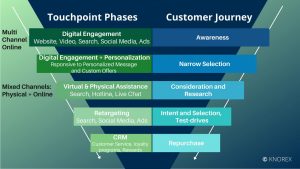The Light of Achievement: Revealing the Power of Car Advertising
In the modern rapidly changing world, the vehicle sector serves as a source of creativity and possibility. Nonetheless, with an ever-evolving market and more selective customers, how can organizations really make an impact? The key lies in effective automotive marketing. This essential practice not only boosts visibility but also builds enduring connections between brands and customers, ultimately propelling success and advancement.

Utilizing the power of car marketing requires a deep insight of both the market and the demographic. From digital campaigns to in-person events, the strategies employed can change a company's presence and nurture a dedicated customer base. By harnessing distinctive content and focused communication, car marketing opens doors to new opportunities and assists organizations steer through the difficulties of an constantly shifting arena. This piece delves into the multiple facets of automotive advertising and demonstrates its potential to tap into the maximum power of your company.
Grasping the Automotive Industry
The vehicle market is a dynamic and constantly changing environment where builders, retailers, and providers strive to gain the attention of consumers. This industry is driven by innovation, with advancements in tech and changing customer preferences influencing emerging trends. From electric cars to driverless vehicles, comprehending these changes is crucial for companies looking to thrive in a fierce landscape.
Consumer patterns plays a major role in the car industry. Potential buyers are increasingly influenced by internet research, social platforms, and digital advertising. Vehicle advertising strategies must be tailored to satisfy the demands of the contemporary customer, focusing on establishing connections and confidence. By utilizing data and consumer knowledge, businesses can develop focused initiatives that connect with their audience.
Furthermore, the automotive market is affected by outside forces such as economic factors, legislative changes, and ecological factors. Promoters must remain aware about these elements to successfully place their offerings and convey their worth. This insight enables organizations to change their tactics, making sure they not only meet consumer needs but also conform with larger market movements. spintax ### Approaches for Impactful Car Promotion
To enhance your business in the car sector, implementing strategic electronic marketing strategies is essential. Kick off by utilizing social networking channels to engage with potential customers. Develop eye-catching content that highlights your cars, promotions, and solutions. Frequent updates, deals, and participatory posts can build a community around your brand. Implement focused ads to target defined demographics, ensuring that your marketing campaigns connect with the right audience.
Additionally, putting resources in website optimization is crucial for web exposure. Optimizing your site with relevant keywords related to automotive advertising will help you move up higher in SEO results. Concentrate on developing high-quality content that meets consumer concerns and wants, which can establish your business as a trusted authority. Additionally, utilizing local business listings can enhance your community standing, simplifying for customers to discover you and explore your offerings.
In conclusion, explore embracing experiential strategies approaches to create unforgettable interactions with your brand. Hosting test drive events or local outreach initiatives can significantly enhance client retention and word-of-mouth. Encourage consumer reviews and testimonies as these can foster confidence and authenticity. By designing meaningful experiences, your vehicle marketing can convert mere fascination into lasting customer relationships.
Assessing Success in Automotive Marketing Efforts
To effectively track success in automotive advertising efforts, it is essential to establish well-defined goals from the beginning. These goals can differ from boosting company awareness and producing leads to boosting sales or strengthening customer loyalty. By establishing specific, trackable criteria such as website traffic, conversion rates, and social media engagement, companies can gain valuable insights into the success of their advertising efforts.
Another important element in measuring the performance of automotive marketing efforts is assessing client feedback and behavior. Engaging with clients through questionnaires or reviewing online reviews allows businesses to gauge satisfaction scores and spot areas for enhancement. Furthermore, analyzing which marketing platforms drive the most client interaction can help in improving strategies and distributing resources more effectively.
Ultimately, using analytics tools to track performance metrics over the long term provides a holistic understanding of what works and what fails in the automotive marketing sector. By regularly assessing data patterns, companies can change their strategies in the moment, ensuring they remain current and successful. This responsive approach not only boosts the chances for success but also fosters ongoing relationships with consumers, ultimately driving sustained growth.